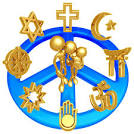I have always had trouble with the concepts of purity and impurity. Not only is it an intrinsic form of “othering”, it goes against all natural laws of transformation and transmutation. It has also had dire consequences in history, not just in the form of Eugenics and other genetically modified projects, but in wider discrimination as well as in Judaism itself. Women have been deemed impure after menstruation, a perfectly natural event. The virgin is pure, but what does that make of the married woman? Various illnesses have rendered people impure, particularly those mentioned in the religious texts. Seriously, how can anything be defined as pure or impure without the imposition of personal fear, bias or bigotry; and of course health, there are many religious rituals around health. Nothing in nature can be said to be pure, everything is constantly changing. Almost everything has contaminants, so purity is something of an illusion. Yet, purity is given a very wide lot. The spread of disease and its impurities depends largely on the levels of immunity, but the focus is always on the disease not the improvement of immune systems. As for pure love, I am still searching for it. When it comes to relationships, devotion, dedication, endurance and commitment make more sense to me than pure love. The evidence suggests that love is essential for good health and well being, but the evidence also suggests that romantic love is more popular than pure love, albeit more stressful. Romantic love is more exhilarating, which speaks to the notion of humans enjoying a life of big risks. Perhaps we can link this trend to our archaic past and the risks taken in hunting, gathering and survival. Statistically, romantic love lasts approximately twelve months before couples burn out on high emotions. So why not aim for pure love? Because, statistically, many are not seeking love, but compensation for feeling incomplete. Why do we feel incomplete? The answer lies in bonding. Bonding involves certain rituals that take place over a lifetime, from the first suck at the breast to the many religious festivals, which often demand that we discard something either as a offering or as a contaminant, this bonds us to systems of belief as well as to other people. The very act of carrying out these rituals builds new pathways in the brain. Our brains run on memories, which we use to push life forward and as Jews we have managed to turn this into fine art, literature and intrigue even over a few stale crumbs. Remarkable!


